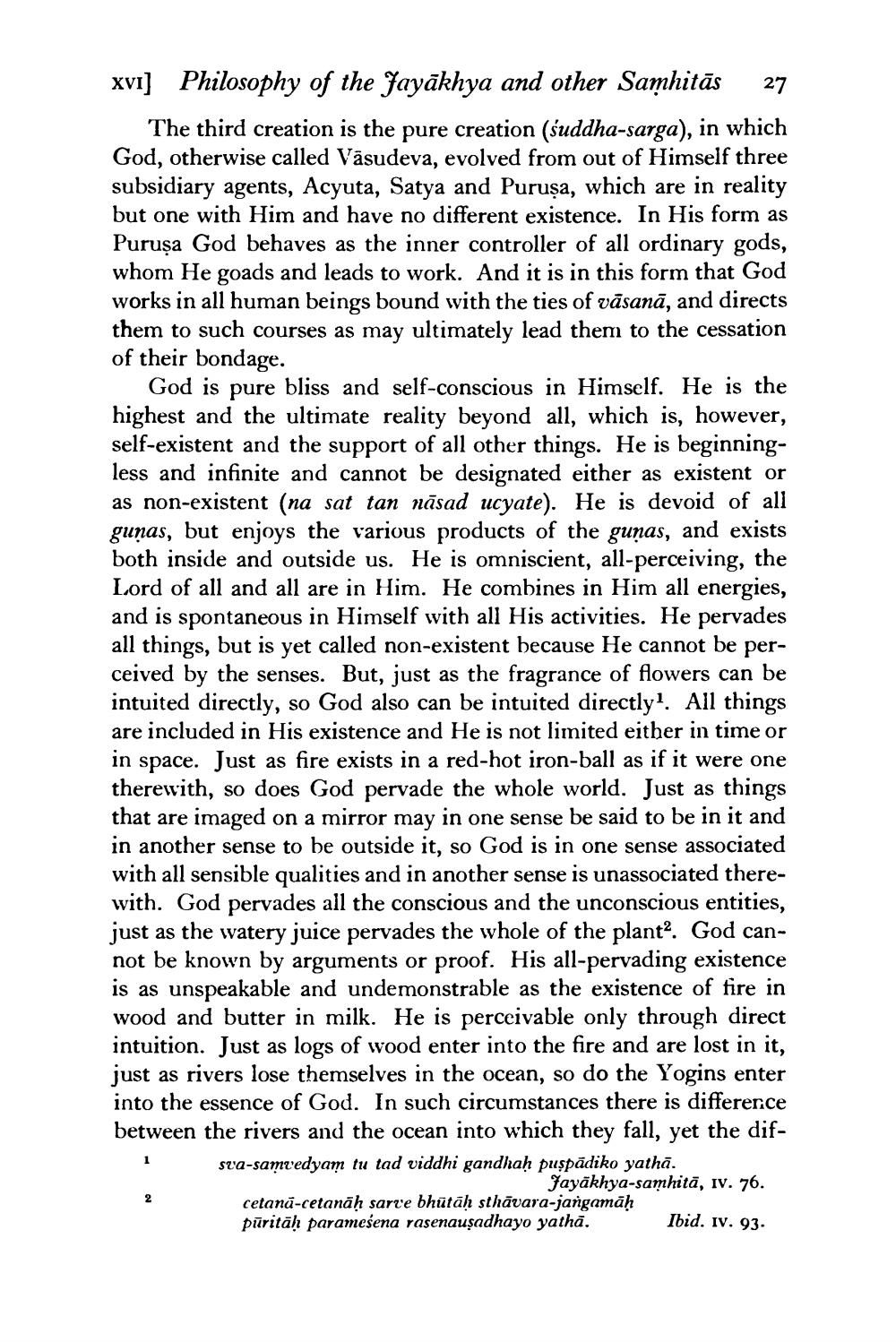________________
XVI] Philosophy of the Jayakhya and other Samhitās
The third creation is the pure creation (suddha-sarga), in which God, otherwise called Vasudeva, evolved from out of Himself three subsidiary agents, Acyuta, Satya and Purușa, which are in reality but one with Him and have no different existence. In His form as Puruşa God behaves as the inner controller of all ordinary gods, whom He goads and leads to work. And it is in this form that God works in all human beings bound with the ties of vāsanā, and directs them to such courses as may ultimately lead them to the cessation of their bondage.
God is pure bliss and self-conscious in Himself. He is the highest and the ultimate reality beyond all, which is, however, self-existent and the support of all other things. He is beginningless and infinite and cannot be designated either as existent or as non-existent (na sat tan nasad ucyate). He is devoid of all gunas, but enjoys the various products of the gunas, and exists both inside and outside us. He is omniscient, all-perceiving, the Lord of all and all are in Him. He combines in Him all energies, and is spontaneous in Himself with all His activities. He pervades all things, but is yet called non-existent because He cannot be perceived by the senses. But, just as the fragrance of flowers can be intuited directly, so God also can be intuited directly1. All things are included in His existence and He is not limited either in time or in space. Just as fire exists in a red-hot iron-ball as if it were one therewith, so does God pervade the whole world. Just as things that are imaged on a mirror may in one sense be said to be in it and in another sense to be outside it, so God is in one sense associated with all sensible qualities and in another sense is unassociated therewith. God pervades all the conscious and the unconscious entities, just as the watery juice pervades the whole of the plant2. God cannot be known by arguments or proof. His all-pervading existence is as unspeakable and undemonstrable as the existence of fire in wood and butter in milk. He is perceivable only through direct intuition. Just as logs of wood enter into the fire and are lost in it, just as rivers lose themselves in the ocean, so do the Yogins enter into the essence of God. In such circumstances there is difference between the rivers and the ocean into which they fall, yet the difsva-samvedyam tu tad viddhi gandhaḥ puspädiko yathā.
1
Jayakhya-samhitā, IV. 76.
Ibid. IV. 93
2
cetana-cetanāḥ sarve bhūtāḥ sthāvara-jangamāḥ puritāḥ parameśena rasenauṣadhayo yathā.
27




